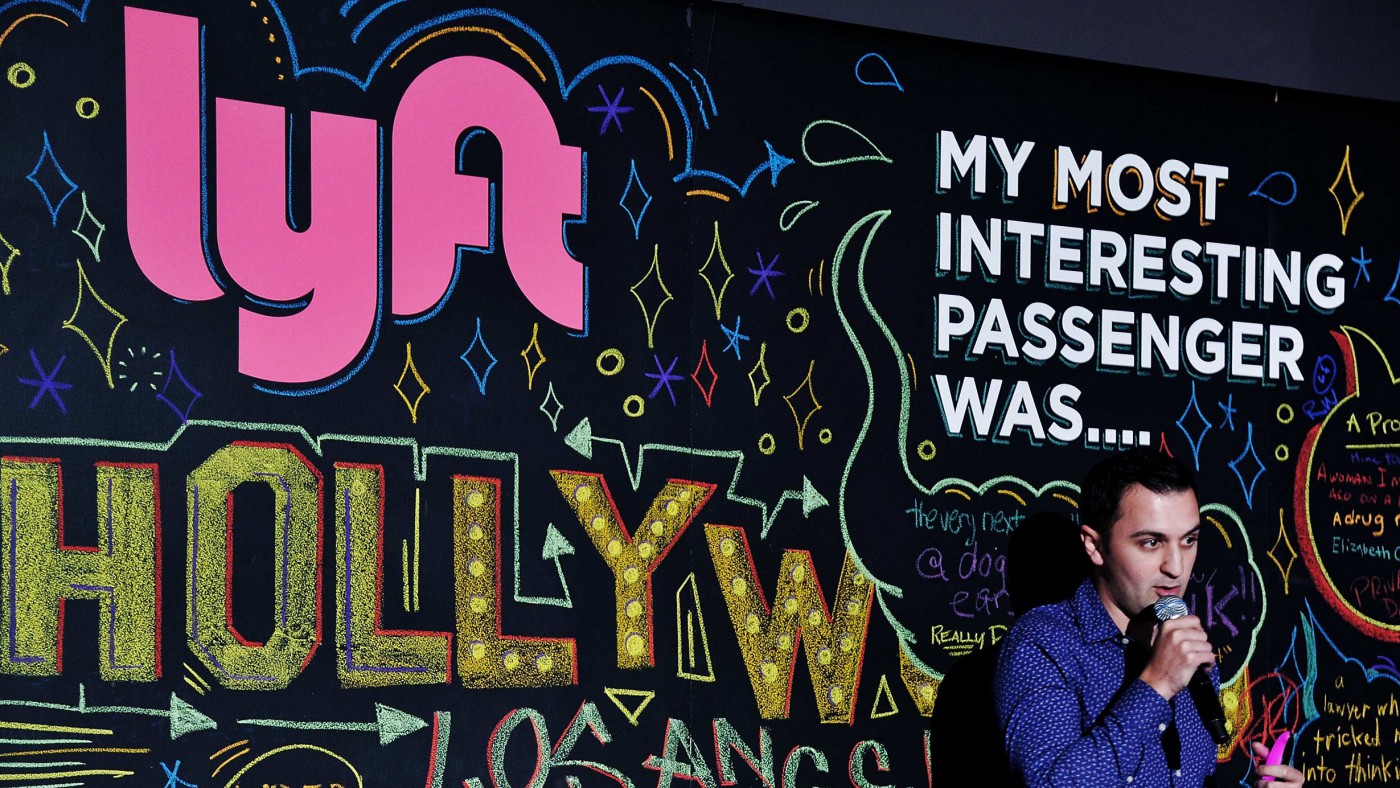When Joe Average steps out of his car after completing his shift for Lyft, he does so on his own terms. Nobody tells him when to start. Nobody tells him when to stop. The siren song that is prime time pricing might have coaxed him off the couch, but ultimately it was his call. And with the rest of his day, he’s going to go fishing. You see, Joe loves to fish — even more than he loves making money. After dinner, he might take some time to criticize the second season of True Detective.
Would ole Karl Marx have been happy with this result?
In The German Ideology, Marx wrote,
For as soon as the distribution of labour comes into being, each man has a particular, exclusive sphere of activity, which is forced upon him and from which he cannot escape. He is a hunter, a fisherman, a herdsman, or a critical critic, and must remain so if he does not want to lose his means of livelihood; while in communist society, where nobody has one exclusive sphere of activity but each can become accomplished in any branch he wishes, society regulates the general production and thus makes it possible for me to do one thing today and another tomorrow, to hunt in the morning, fish in the afternoon, rear cattle in the evening, criticise after dinner, just as I have a mind, without ever becoming hunter, fisherman, herdsman or critic.
Marx should be delighted — oh, except that it’s capitalism, not communism, that’s allowing Joe to be a fisherman and a critic on his own terms.
The sharing or “gig” economy is not only disrupting the way people live and work; it’s dividing the left considerably.
On the one hand, you have the nostalgic leftists who want Joe to work a nine-to-five job and skip the fishing. You know, like people did in the 1950s. As Freeman columnist Steve Horwitz writes, presidential candidate Hillary Clinton
longs for a time like the 1950s when workers had the structure of the corporate world and unions through which to lobby and negotiate for pay and benefits, rather than the so-called “gig” economy of so many modern freelance employees, such as Uber drivers. “This on-demand or so-called gig economy is creating exciting opportunities and unleashing innovation,” Clinton said, “but it’s also raising hard questions about workplace protection and what a good job will look like in the future.”
Joe already told us what a good job looks like. It’s one that lets him spend time fishing and criticizing.
More confusing (or confused, perhaps) is Paul Mason’s writing in the Guardian. He lauds “postcapitalism,” which has all the hallmarks of a society Clinton is worried about:
Postcapitalism is possible because of three major changes information technology has brought about in the past 25 years. First, it has reduced the need for work, blurred the edges between work and free time and loosened the relationship between work and wages.
Bingo. The gig economy. But does it make sense to give capitalism a different name? I suppose one could. After all, Marx coined the term. But Marx’s definition of capitalism is a system based on private ownership of the means of production. Has that dynamic fundamentally changed?
Far from it. The sharing economy is simply decentralizing power by allowing ordinary people to use their own small-scale means of production. By solving coordination problems and lowering transaction costs, technology is augmenting capitalism.
By solving coordination problems and lowering transaction costs, technology is augmenting capitalism.
When Joe drives for Lyft, for example, his car is still his car. And now more of his time is his, too. Capitalism, even as Marx defined it, hasn’t fundamentally changed. But the use of technology to awaken sleeping private capital is allowing the system to evolve — and rather nicely if you’re Joe Average, or one of thousands of other workers like him.
Now, I’m not saying that there is nothing interesting going on in the electronic commons. Ideas are being configured and reconfigured in the networked economy. Many of those ideas are being taken out of the intellectual-property regime, thanks to open sourcing, and this can be a good thing. There are fierce debates about whether intellectual property (claims to property in ideas and in nonscarce goods) is justifiable. But passing over those debates, more and more open-source technologies are coming online for exploitation by everyone.
Do open sourcing and the creative commons take us to postcapitalism?
I don’t know. But fundamentally, as long as the process is voluntary and carried out peacefully by a community of cooperators, who cares what you call it? Should we be upset that the guy who founded Lyft is getting rich from the tech? Some people are, because they see the accumulation of wealth as taboo. But Joe’s life is better than it would have been in the absence of Lyft. The company allows him to live more of the life he wants to live.
As long as Joe Average is happier, who cares what Hillary Clinton thinks?
This article was originally published by the Foundation for Economic Education, and can be found here.


